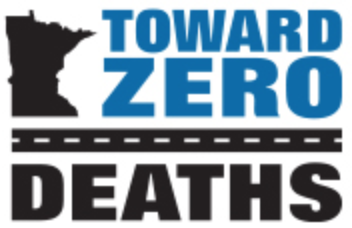2021 Minnesota TZD Webinar Series: What is Happening on All Roads?
Wednesday, November 17, 2021
About the Webinar
Over the past 18 months, the Minnesota experience of dramatically reduced vehicle-miles traveled coupled with a dramatic increase in vehicle speeds (coupled with other poor driving choices) has resulted in a significant increase in fatal crashes. Regrettably, this same experience is occurring across the country and across the world.
What is happening? Why is this happening? During this webinar, attendees heard perspectives from state and highway patrol chiefs from Minnesota, Colorado, and California.
This webinar was not recorded.
Speakers
Moderator
Mike Hanson, Minnesota TZD Program Co-Chair and Director, Office of Traffic Safety, Minnesota Department of Public Safety
Presenters
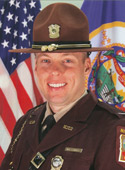
Colonel Matt Langer has been a Minnesota State Trooper since 1999. He began his career in the St. Paul station, where he worked the afternoon shift. He spent over four years on the Metro Crash Reconstruction Team, where he reconstructed hundreds of fatal and serious injury crashes. He was the director of the State Patrol’s fleet and asset management section before assuming public information duties. As a captain, he directed public information work, homeland security efforts, and traffic safety grants. He served for two-and-a-half years as the assistant chief and a year as the acting chief before being appointed colonel, chief of the State Patrol, in January 2015. Colonel Langer has a master’s degree in public and nonprofit administration, as well as a bachelor’s degree in criminal justice and law enforcement. In addition to his work at the State Patrol, he has held an adjunct faculty position at Century College since 2006. He is active on the International Association of Chiefs of Police Board of Directors and the State and Provincial Police Division Executive Board, where he currently serves as general chair. In that position, he represents the state law enforcement agencies across the United States and Canada.
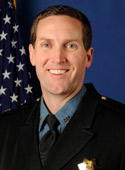
Colonel Matthew Packard started his career with the Colorado State Patrol in 2000. He first worked with the facilities management group prior to starting his training to become a Colorado State Trooper. After graduating from the training academy in 2000, he was assigned as a field trooper in Castle Rock, Colorado. He transferred to the Accident Reconstruction team in 2002, where he served until his promotion to sergeant in 2006. As a sergeant, he held assignments in Trinidad as a field supervisor as well as the Homeland Security Section, where he served as the deputy director of the state’s nationally recognized fusion center. In 2010, Packard was promoted to captain and assigned to the Hazardous Materials Section. He was promoted to the rank of major in 2012 assigned to the Criminal Investigations Branch before transferring to be the District 1 commander in 2014, where he led field operations in the greater Denver metropolitan area as well as the Executive Security Unit. In February 2017, he was promoted to lieutenant colonel as the Region 3 commander, where he oversaw the agency’s communications branch, training, public outreach, media relations, headquarters, and grants-related functions. On December 19, 2017, Colonel Matthew Packard was named the ninth chief of the Colorado State Patrol. As Colonel Packard leads the organization of more than 1,200 members serving in various roles, he believes in the importance of the agency’s guiding principles of member empowerment, visibility, and engaging the communities they serve. Colonel Packard earned a bachelor’s degree in business administration with an emphasis in accounting from the University of Northern Colorado and is a graduate of Northwestern University’s Center of Public Safety School of Police Staff and Command session #357. Colonel Packard also serves as a board member of the International Association of Chiefs of Police as well as a commissioner for the Commission on Accreditation for Law Enforcement Agencies.
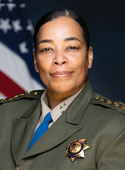
Commissioner Amanda L. Ray was appointed the 16th commissioner of the California Highway Patrol (CHP), the nation’s largest state police agency, on November 17, 2020. Commissioner Ray is the first woman to lead the department of more than 11,000 members. She is a 31-year veteran of the CHP, has earned numerous awards and commendations in her personal life and professional career, and has been a pioneer for women in law enforcement. Prior to her appointment to commissioner, she was the first African American female in the CHP’s 91-year history to hold the position of deputy commissioner, where she was responsible for the day-to-day operations of the CHP. Commissioner Ray served an integral role as the department’s first female to be assigned as the Special Response Team tactical commander during Super Bowl 50, held at Levi Stadium in Santa Clara, California. Her vast field experience has allowed her to effectively serve as incident commander during a variety of other high-profile events, including the department’s response to COVID-19, civil unrest, and wildfires. As a leader in law enforcement, Commissioner Ray holds firm to the values set forth by the CHP’s Mission and Public Trust Initiative to serve and safeguard California’s communities with compassion and understanding. Throughout her career, Commissioner Ray has actively engaged with the communities she serves, seeking every opportunity to participate in outreach events, and has had active involvement in departmental programs to provide the highest level of safety, service, and security to the people of California. Commissioner Ray holds a Bachelor of Arts in psychology from the University of California, Berkeley.
Credit
Attendees are eligible for 1.0 POST credit, 1.25 Professional Development Hours (PDHs), and 1.25 Continuing Legal Education (CLE) credits.
- PDH form (PDF)
- CLE credit form (PDF)
- POST Proof of Completion form (PDF)
This form does not need to be submitted; it is for your records only. - POST Affidavit of Attendance (DOC)
Please submit this form to tzd@umn.edu by March 31, 2022, to receive credit if you watched the webinar live. If the webinar was viewed with a group, please include all individuals' information. If you choose to fill in the form by hand, please print clearly.
More Information
For more information about the webinar, please contact Linda Dolan at ldolan@umn.edu.
Sponsors
The webinar series was offered by the Minnesota Toward Zero Deaths Program and the Minnesota Departments of Health, Public Safety, and Transportation, with funding from the National Highway Traffic Safety Administration. The series was hosted by the University of Minnesota's Center for Transportation Studies.
Additional sponsorship provided by:
 |
 |
 |
 |
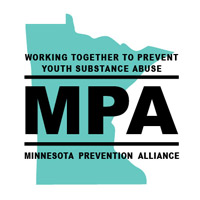 |
